14 min to read
SEO (search engine optimization) is, without a shadow of a doubt one of the most effective ways of marketing businesses in the modern world. It involves manipulating the algorithms of major search engines so that the target website appears higher than their competitor’s ones in SERPs (search engine results pages). You can push your business to the top of Google, Bing, or Yahoo’s listings by utilizing SEO unfortunately, though it is a highly technical area of marketing that requires extensive study before it can be mastered. This post will simplify it and tell you how you can use SEO to grow your business:
CodeDesign is the leading digital marketing agency in Lisbon Portugal.

If you want to use SEO to grow your business, consider working with an expert. An expert’s help will prove invaluable when marketing your business. A lot of people make the mistake of attempting to manage SEO independently. Unless you have been trained in it (and have a lot of time to devote to it) there is no way you’ll be able to turn SEO into a winning strategy for success. We sometimes, on specific projects team up with experts like Bruno Gavino, or Mike McKearin, to help with a third party SEO analysis. Take some time to read and learn about the individual you plan on hiring to ensure they offer high-quality service.
Optimizing Your Website
One of the best things you can do if you want to improve your website’s authority is to optimize it. Search engines rank optimized websites a lot higher than unoptimized ones. It is not hard to see why when you consider the undeniable fact that an optimized website is considerably easier to use than one that isn’t. Bear in mind also that when you optimize your website, you make it look a lot better too as the site’s layout will be improved. Read this complete guide on digital marketing funnel and then choose the right digital marketing channel for your business.
Posting Regular Content
On your website, post regular content. Regular content is an extremely effective way of improving your site’s ranking. Search engines rank websites with good content on them much higher than those without. This is because search engines like to give internet users the most information they possibly can. By ranking websites with a lot of content, they are able to answer people’s questions and concerns. Make sure your content is relevant and updated though as if it isn’t then this could have a detrimental impact on your site’s performance.

Securing External Backlinks
In your content (and in the content of other people) you need to make sure that backlinks are posted. Backlinks can add a lot of authority to your website. Collaborating with the owners of other websites and negotiating backlink exchanges can be one of the most effective ways of increasing your website’s ranking. Bear in mind that securing backlinks can be expensive. If it’s something you are interested in doing, make sure you try and get the best possible price for yourself. You can do this by haggling with website owners and bloggers.
Understanding the Process
If you want to manage your website search engine optimization efforts, you need to understand the process. Optimizing a website is highly complicated and can take weeks or months to truly understand. Because of this, you may want to take a course. Taking a course will help you learn everything you could ever need to know about SEO in the shortest time possible. Bear in mind, courses can be expensive full stop because of how much information they provide students and those attending, course leaders are able to charge exorbitant sums of money. Check these Amazon FBA tips to grow your business and see how optimising your Amazon listing could help you grow.
Having Some Patience
What you need to know about search engine optimization is that while it is indeed one of the most effective strategies for increasing website visibility, it is also one of the slowest. SEO is not something that just happens overnight. It takes weeks, months even. You need to be consistent in your efforts otherwise your site won’t rank. Make sure that you hire an agency to work on your behalf if you are unable to work on it yourself. Hiring an agency will save you a lot of time and while it will be expensive, you’ll be able to focus your efforts on other things.
SEO is one of the most effective ways of improving the visibility of your website. If it is something you are interested in doing, find a reliable consultant or learn the basics of it yourself. Read this guide on E-commerce supply chain and voice search optimization.

Unleashing SEO: A Deep Dive into Growing Your B2B Business
SEO strategies tailored just for your B2B needs.
Understanding B2B SEO
First, let's be clear - B2B SEO is different from B2C SEO. While B2C customers often make quick, emotion-driven decisions, B2B customers usually take their time. They do their research, they weigh their options, and they often need to get multiple stakeholders on board. This means your SEO strategy needs to focus on providing valuable, in-depth information that positions you as a trusted advisor, not just a seller.
Long-Tail Keywords: Your Secret Weapon
Case in point: Unidays, a global student verification and marketing service provider. When they first started their SEO journey, they targeted high-competition, broad keywords. But they soon realized they were spending a lot of effort for very little return.
So, they switched gears. They started targeting long-tail keywords - specific, low-competition keywords that B2B buyers use when they're getting close to making a purchase decision. For example, instead of targeting 'student marketing', they targeted 'student verification services for online retailers'.
The result? More importantly, a significant increase in organic traffic and a surge in conversions. Because when B2B buyers search for long-tail keywords, they're not just browsing. They're ready to do business.
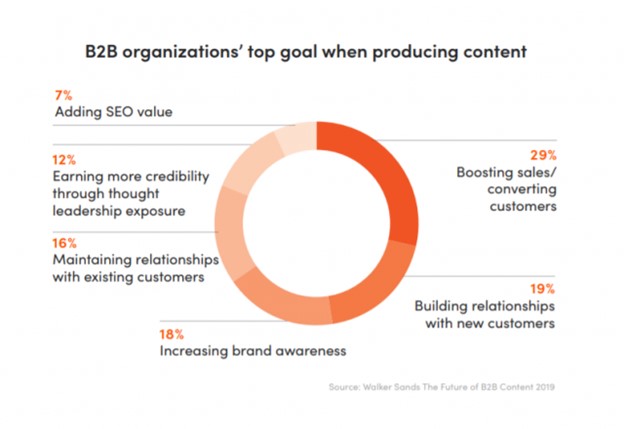
Quality Content: The Gift That Keeps on Giving
But it's not just about keywords. It's about providing high-quality, valuable content that answers your prospective customers' questions and solves their problems. Look at Cisco, a multinational technology conglomerate. They have a whole section of their website dedicated to case studies, white papers, and how-to guides.
And it's not just filler content. It's detailed, in-depth, and highly valuable information that positions Cisco as an authority in the field. It's content that gets shared, gets linked to, and keeps people coming back for more. And that's exactly what you want from an SEO perspective.
Optimizing for Mobile: It's Not Just for B2C
You might think that mobile optimization isn't that important because you're in the B2B space. After all, aren't your customers sitting at their desks, browsing on their desktop computers? Think again.
A study by Google found that 50% of B2B queries are made on smartphones. And that figure is expected to grow to 70% by 2020. So if your website isn't optimized for mobile, you're potentially missing out on a lot of business.
Take HubSpot, for example. They noticed that most of their traffic was coming from mobile devices. So they decided to implement a responsive design, making their website look great on any device.
The result? Their mobile conversion rates skyrocketed. Because even B2B customers appreciate a smooth, frictionless mobile experience.
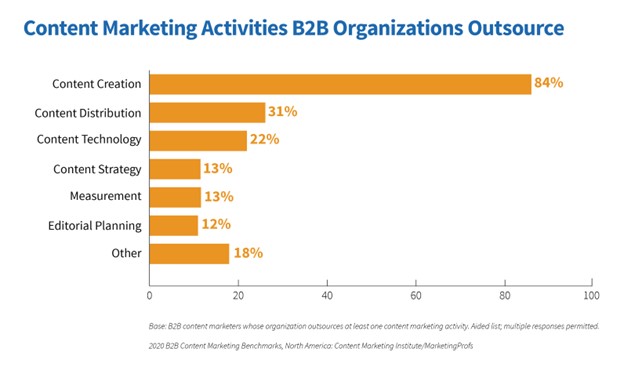
Local SEO: Don't Ignore Your Own Backyard
If you're a B2B business that serves a specific geographic area, don't ignore local SEO. It's a great way to get your business in front of prospective customers in your area.
For example, consider Jones IT, a San Francisco-based IT services provider. They optimized their website for local SEO by including their city name in their title tags, meta descriptions, and website copy. They also claimed their Google My Business listing and gathered reviews from local customers.
The outcome? Jones IT now ranks in the top three in Google's local pack for several key search terms, resulting in a notable increase in local leads and business.
Tech SEO: Under the Hood
When it comes to SEO, what's under the hood is just as important as what's on the surface. Having a website that's technically sound is crucial to your SEO success.
Look at Adobe, a multinational computer software company. A few years back, they realized that their website was suffering from a lot of technical SEO issues like slow load times, broken links, and duplicate content. This was seriously hampering their SEO performance.
So, they rolled up their sleeves and got to work. They improved their site speed, fixed their broken links, cleaned up their duplicate content, and implemented an XML sitemap. This not only improved their SEO but also provided a better user experience for their visitors.
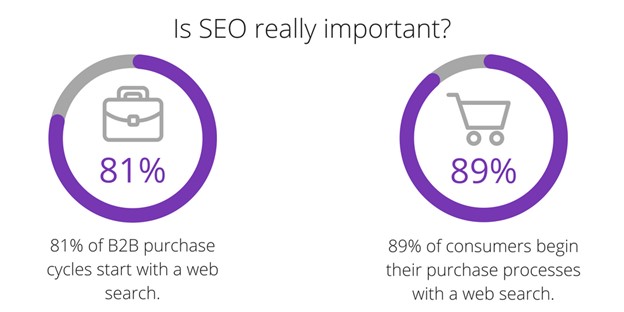
Backlinks: The Backbone of SEO
Backlinks, or links from other websites to your website, are one of the most important ranking factors in SEO. They're like votes of confidence from other websites that tell search engines your website is reputable and trustworthy.
Check out how Mailchimp, an all-in-one Marketing Platform for small businesses, capitalized on backlinks. They created an engaging and fun-to-use product that people loved to talk about and link to. They also actively pursued guest blogging opportunities and partnerships with other reputable businesses to build their backlink profile.
The payoff? A strong backlink profile that helped them achieve top rankings for many of their target keywords.
In Conclusion: B2B SEO is a Marathon, Not a Sprint
The key takeaway from all these examples? B2B SEO is not about quick wins. It's about consistently providing value, building authority, and establishing trust. It's about understanding your audience, what they're searching for, and how you can help them.
And it's worth it. Because when you successfully implement B2B SEO strategies, you're not just increasing your website traffic. You're attracting high-quality traffic that's likely to convert. And that's how you grow your B2B business.
So get out there and start optimizing! And remember - in SEO, as in life, the best approach is a holistic one. Combine a strong keyword strategy with quality content, technical excellence, and a focus on building backlinks to deliver a powerhouse SEO strategy that will deliver results. Onward and upward!
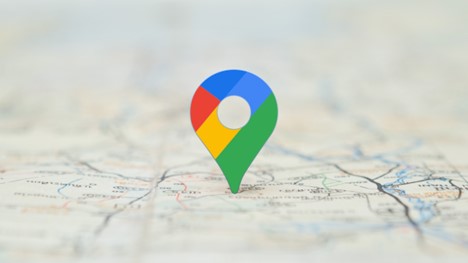
Boosting Your Local Mojo: Unveiling SEO Strategies for Your Local Business
Let's take a wild ride, my fellow local business folks, through the twisty, turny, and oh-so-wonderfully rewarding world of Local SEO! Grab your favorite caffeinated beverage, and let's dive into how you can crank up your business growth using a few nifty SEO strategies.
GMB (Google My Business): Your New Best Friend
Let's start with the big dog, Google My Business. This little gem is like your business's personal billboard on Google, and when it's optimized right, it can bring a whole lot of eyeballs (and customers) your way.
Just take a look at our friends over at 'The Donut Shop' in New York. They went all in on their GMB listing, adding high-quality photos, responding to every review (yep, the good and the bad), and regularly updating their business info. The result? A steady stream of walk-in customers who found them on Google Maps. Sweet!
Local Keywords: Talk the Talk
When it comes to local SEO, it's all about speaking the local lingo. By incorporating location-specific keywords into your website (think 'Chicago plumber' rather than just 'plumber'), you can seriously amp up your visibility in local search results.
Remember Dave's Diner in Denver? They were struggling to get traction online until they started using local keywords in their website content and meta tags. Now, they're ranking at the top for "diner in Denver," and their business is booming.
Online Reviews: The Word on the Street
For local businesses, online reviews are gold. According to BrightLocal, 82% of consumers read online reviews for local businesses. So, the more positive reviews you have, the better your chances of attracting new customers.
Take the example of 'Friendly Fitness,' a local gym in Boston. They encouraged their happy members to leave reviews online and in no time, they saw an uptick in inquiries and sign-ups. Talk about flexing your online reputation!
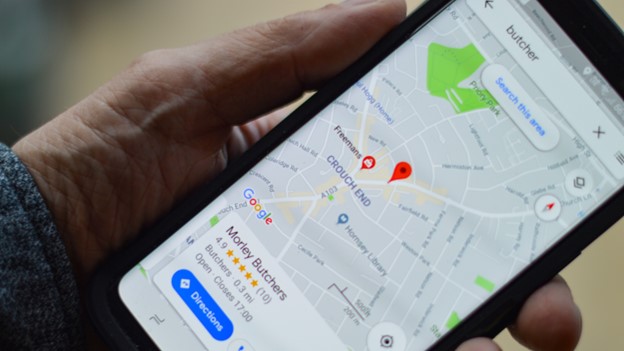
Mobile Optimization: Catch 'Em on the Go
With the majority of local searches being done on mobile devices, having a mobile-friendly website isn't just nice to have - it's an absolute must.
Remember Sally's Salon in San Francisco? Their website was a mess on mobile devices, causing them to lose potential customers. Their bounce rate plummeted after switching to a responsive design, and appointment bookings shot up. Now, that's what we call a makeover!
Local Link Building: The Neighborhood Watch
Getting other local businesses and organizations to link to your website can seriously boost your local SEO. These backlinks improve your site's authority and show Google that you're a legit part of the local community.
Look at Pet Paradise in Phoenix. They partnered with local pet influencers and animal shelters for events and fundraisers, earning them a slew of local backlinks. Not only did their search rankings improve, but they also became a beloved part of the community.
Schema Markup: The Secret Sauce
Using schema markup on your website can help search engines better understand your business and give your local SEO a little boost.
Consider the case of 'Books Galore' in Baltimore. Adding schema markup to their website made it easy for search engines to understand what their business is, where it's located, and when it's open. This led to a noticeable increase in their visibility in local search results.
The Endgame: Growing Your Local Business
Alright, local business champs, we've navigated through the ins and outs of local SEO. From setting up and optimizing your GMB listing, using local keywords, garnering online reviews, mobile optimization, local link building, to adding schema markup, these tactics are instrumental in driving your local SEO strategy.
In the grand scheme, all these strategies lead to one endgame: growing your local business. As you climb up those local search rankings, you're not just boosting your online visibility, you're making real, tangible impacts on your business. More foot traffic, more calls, more sales, and more growth.
Let's take a leaf out of 'Cafe Corner' in Seattle. They were a small coffee shop hidden in the city's alleyways, but when they dove headfirst into local SEO, they started to brew up a storm! With a well-optimized GMB profile, local keyword usage, excellent online reviews, and a mobile-friendly website, they stirred up their customer base, percolating from a quiet corner cafe to the city's go-to coffee stop.
And then there's 'TechFix' in Dallas, a local gadget repair shop. They were pretty popular in the neighborhood, but their online visibility was low. When they jumped into local link building and added schema markup to their website, they managed to dominate the search results for "gadget repair in Dallas." Now, they're not just a neighborhood favorite, but a city-wide sensation.
The journey of Cafe Corner and TechFix is a testament to the power of local SEO. Remember, folks, in the world of SEO, every little bit helps. It's not about making one big change but about making lots of small ones that add up to a big result.
So, take these strategies and weave them into your local SEO game plan. Whether you're running a bakery, a bike shop, or a barber's, these tactics can help drive more customers through your door.
And remember, the SEO road might be long, but with a bit of patience and persistence, it's one that leads to growth. So gear up, rev your SEO engines, and let's take your local business to the next level. Let's roll!
CodeDesign is leading:
- Digital Agency
- Digital Marketing Agency
- Amazon Marketing Agency
Connect with Codedesign today.
FAQS - Frequently Asked Questions
How can SEO strategies specifically benefit my business's growth?
SEO strategies can significantly benefit your business's growth by increasing your website's visibility and attracting more organic traffic. By optimizing your site for relevant keywords and phrases, you make it easier for potential customers to find your products or services online. This increased visibility leads to higher website traffic, which can translate into more leads and sales. Furthermore, SEO helps in building brand awareness and credibility. When your site appears at the top of search engine results, it is perceived as more trustworthy and authoritative by users. Over time, effective SEO strategies lead to sustained organic growth, reducing dependence on paid advertising and improving the overall return on investment for your digital marketing efforts.
What are the key differences between B2B and B2C SEO strategies?
The key differences between B2B and B2C SEO strategies lie in their target audiences, keyword focus, content strategies, and the length of the sales cycle. B2B SEO strategies often target niche, industry-specific keywords and produce in-depth, informative content designed to educate and engage a professional audience. This is because B2B purchasing decisions are usually made based on detailed information, expertise, and the ROI of the product or service. On the other hand, B2C SEO strategies focus on broader, more general keywords that cater to a wider audience and emotional triggers, with content often designed to entertain or inform in a more casual, accessible way. B2C strategies also account for shorter sales cycles, meaning the path from discovery to purchase is quicker and more direct than in B2B scenarios.
Why are long-tail keywords crucial for a successful SEO strategy?
Long-tail keywords are crucial for a successful SEO strategy because they are more specific and less competitive than shorter, more generic keywords. This specificity makes them more targeted to user intent, leading to higher conversion rates as the traffic attracted is more likely to be looking for exactly what you offer. Additionally, long-tail keywords often have a lower search volume, which means they are less targeted by your competition, providing an opportunity to rank higher in search engine results. Incorporating long-tail keywords into your content strategy allows you to capture niche markets and meet the specific needs of your audience, ultimately driving more qualified traffic to your site.
How does producing regular, quality content impact my website's SEO?
Producing regular, quality content significantly impacts your website's SEO by keeping your site fresh and relevant, which search engines favor when ranking pages. Regularly updated content provides more opportunities to include relevant keywords, improving your site's visibility and attracting more organic traffic. Quality content also enhances user engagement, as valuable, informative, or entertaining content encourages visitors to spend more time on your site, reduce bounce rates, and share your content on social media. These positive user signals can further boost your SEO rankings. Additionally, consistently publishing quality content establishes your brand as an authority in your field, attracting backlinks and further improving your site's SEO performance.
What role do external backlinks play in enhancing my site's authority and SEO?
External backlinks play a crucial role in enhancing your site's authority and SEO. Backlinks from reputable and relevant sites act as endorsements, signaling to search engines that your content is valuable and trustworthy. This can significantly boost your site's rankings in search engine results pages. The quality, relevance, and number of backlinks to your site are key factors in your search engine ranking. Additionally, high-quality backlinks drive referral traffic to your site, further increasing visibility and potential leads. Building a robust backlink profile requires creating valuable content that others want to link to, outreach efforts, and strategic partnerships.
Can you explain the importance of understanding the SEO process for effective optimization?
Understanding the SEO process is crucial for effective optimization because it involves various elements that work together to improve your website's visibility in search engine results. Knowing how search engines crawl, index, and rank websites enables you to make informed decisions about your SEO strategy. This includes selecting the right keywords, creating quality content, optimizing website structure and user experience, and building backlinks. A deep understanding of SEO processes also helps in identifying and rectifying issues that could be hindering your site's performance, such as slow loading times or mobile unfriendliness. Furthermore, SEO is constantly evolving, so staying informed about the latest guidelines and algorithm updates is essential for maintaining and improving your site's ranking over time.
Why is patience essential in seeing results from SEO efforts?
Patience is essential in seeing results from SEO efforts because SEO is a long-term strategy that involves building authority and trust with search engines over time. Unlike paid advertising, which can provide immediate visibility, SEO improvements may take several months to significantly impact your site's traffic and ranking. This delay is due to the time it takes for search engines to crawl and index your updated content, for backlinks to affect your site's authority, and for changes to be reflected in search engine algorithms. Furthermore, the competitive nature of rankings means that sustained effort is required to achieve and maintain high rankings. Patience, combined with consistent optimization efforts, ultimately leads to organic growth and long-term success.
How does mobile optimization contribute to SEO success, especially for B2B businesses?
Mobile optimization contributes significantly to SEO success, especially for B2B businesses, by ensuring that websites provide a seamless user experience across all devices. With the increasing use of smartphones and tablets for business research and transactions, having a mobile-friendly website is essential for engaging this growing audience. Mobile optimization affects several key SEO factors, including page speed, design, and usability, which are critical for maintaining high rankings in search engine results. For B2B businesses, where decision-makers often research products and services on-the-go, a mobile-optimized site can enhance engagement, improve lead quality, and increase conversion rates, directly impacting business growth.
What is local SEO, and how can it improve my business's online visibility?
Local SEO is the optimization of your online presence to attract more business from relevant local searches. This involves optimizing your website and its content for local search keywords, ensuring your business appears in local search engine results pages (SERPs), and managing listings in online directories like Google My Business. Local SEO is crucial for businesses that serve specific geographic areas, as it helps them appear in search results when potential customers in their region search for related products or services. By improving online visibility for local searches, businesses can increase foot traffic, phone calls, and online inquiries from their target audience, ultimately boosting sales and revenue.
What are the technical aspects of SEO I should be aware of to improve my website's performance?
To improve your website's performance through SEO, it's essential to be aware of several technical aspects. These include site structure and navigation, which should be designed to allow search engines to crawl and index your site efficiently. Page speed is another critical factor, as slow-loading pages can negatively impact user experience and search engine rankings. Ensuring your site is mobile-friendly is also crucial, given the growing importance of mobile search. Additionally, secure website connections through HTTPS, proper use of header tags for content structure, and the creation of XML sitemaps to aid search engines in crawling your site are vital technical SEO elements. Addressing these technical aspects can significantly improve your site's usability, speed, and overall search engine visibility, leading to better SEO outcomes.

Add comment ×